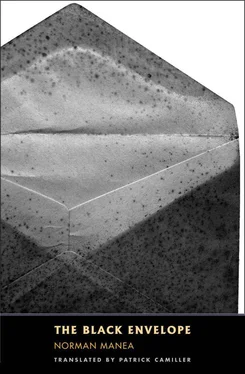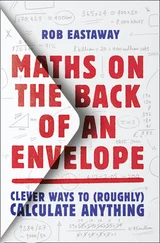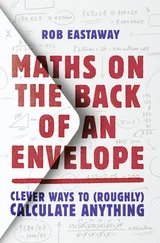“Failure to comply with the statutes is sanctioned by criticism, reprimand, formal warning, censure, and expulsion”—recited the dark-haired man facing Dominic, with a smile on his lips. He was smiling! Why was he smiling, with those big yellow teeth? Dominic looked again at the eyebrow, at that scratch from a nail or razor blade or insect or whatever. He laid the brochure aside and took the first of the Newletters. Via¸ta Noastr  , Our Life : that was the title of the Association’s paper, printed in big red letters.
, Our Life : that was the title of the Association’s paper, printed in big red letters.
At the top of the page: WORKERS OF THE WORLD, UNITE! VIA¸TA NOASTR  , ORGAN OF THE COUNCIL OF THE ASSOCIATION. Then the front-page headlines. HOMAGE TO THE BELOVED LEADER. EULOGISTIC POEM. POSITIVE BALANCE SHEET, MORE EXACTING DEMANDS. PLENARY SESSION OF THE CENTRAL COUNCIL. He looked up. The office worker was no longer smiling. He looked down. “The conclusion of the Five Year Plan marks another major step in building the multilaterally developed society, the achievement of new, higher quality in the work and life of working people. The wise, clear-sighted leadership, the Leader’s precious directives and guidelines, dynamize consciousness and mark out the broad and intricate process of the construction of the multilaterally developed society. At the center of activity is man himself — created by the conditions for the multilateral affirmation of the human personality, which is an expression of the revolutionary humanism characterizing the Association.”
, ORGAN OF THE COUNCIL OF THE ASSOCIATION. Then the front-page headlines. HOMAGE TO THE BELOVED LEADER. EULOGISTIC POEM. POSITIVE BALANCE SHEET, MORE EXACTING DEMANDS. PLENARY SESSION OF THE CENTRAL COUNCIL. He looked up. The office worker was no longer smiling. He looked down. “The conclusion of the Five Year Plan marks another major step in building the multilaterally developed society, the achievement of new, higher quality in the work and life of working people. The wise, clear-sighted leadership, the Leader’s precious directives and guidelines, dynamize consciousness and mark out the broad and intricate process of the construction of the multilaterally developed society. At the center of activity is man himself — created by the conditions for the multilateral affirmation of the human personality, which is an expression of the revolutionary humanism characterizing the Association.”
Dominic looked up, looked down, turned the page of the newsletter. “On the fourth Sunday of the month we celebrate the international day of the deaf, a splendid occasion for a balance sheet. Each member must display a greater sense of concern and act resolutely to achieve growth in labor productivity, tighter discipline, and constant improvement of the style and methods of work. The Best Locksmith competition. The Best Sportsman competition. The ‘Song in Praise of the Fatherland’ literary competition. The International Year of the Disabled. The care taken by the Party and state to create the right conditions for work and study. The football match between the teams Silence C. and Silence P. — a fine occasion to test technical-tactical capabilities and physical training. After the end of vocational training, the young man wanted to follow a course at evening college. Recognizing his qualities, as well as his exemplary conduct, his local organization accepted him into the ranks of the Party. Sorin is making every effort to ensure that his performance at work matches the confidence shown in him.”
Dominic looked up. The office worker was smiling. His dark unblinking eyes were trained on him. And the blue eyes of the man with disheveled hair in the middle of the room, and of the bespectacled man next to him who was furiously smoking a cigarette. Only the sweet little typist clicked away without pause, her role being to cover the silence, the sequence with the rigid office workers who did nothing but keep the intruder under observation.
“It’s not an ordinary public association, any old collective of — do you know what I mean?” resumed the whispering guide, Comrade Daddy or Iopo, or whatever the comrades called him. “It’s a model, do you understand?” And he nervously rubbed his eyebrows — both ruffled eyebrows at the same time, with both hands.
“Many people, oh yes, too many, could be taught a thing or two. They should learn from — from our members, I mean. They’re not distracted by anything during working hours. They don’t talk, don’t hear, don’t listen; then can’t gossip or tell jokes. Nor do they waste themselves on all kinds of trifles. They spend the whole time concentrating on their work — tidy, disciplined, and loyal. Above all loyal: that’s what matters most. Without any frivolity, without jokes or any of that nonsense. Double-dealing, grumbling, all those whims which—”
He stared straight in Dominic’s eyes, severe, distrustful, accusatory, and yet he smiled. He smiled! A weird smile was stuck to his lips — impossible to tell whether it was scornful or malicious or idiotic. A rigid smile which ended up scaring him. Dominic again looked down at the paper. “A call for socialist competition addressed to all branches. The stages of affirmation. Labor — an honor-bound duty. Discipline — as much discipline as possible,” but he couldn’t escape the sound of the guide.
“They’re conscientious, extremely conscientious. They keep their minds on their work, carrying out instructions to the letter. They’re punctual and see through to the end what they are entrusted with. We had an exemplary case of a woman comrade who for ten years has been head of a machine shop at the Brotherhood Shipyard. A shining example. What more can I say!”
Had the others also smiled that uniform smile printed forever on their mask? Dominic was just on the point of looking up when the guide’s voice suddenly became higher, rising above its usual pitch.
“Ah, here is the Executive. It means the meeting of the executive bureau is over. Now you can talk to the comrade herself.”
Beside the typist stood a short, modestly dressed housewife. Thick gray skirt, knitted blue jacket. Spectacles, long nose, sparse tangled hair. She held out a small, moist hand, with nails cut down to the flesh.
“No doubt you’ve also come because of the new law. It’s a state measure. I can’t discuss it.”
The voice was hoarse, rusty, but calm and weary.
“You know, all I want is to—”
“If you want to know my personal opinion, my private, not official opinion, because I’m an employee here representing the Association, my opinion as a human being, shall we say, well, come along inside and we can talk it over.”
She invited him into an enormous long room with a long table against the wall, draped with red cloth and flanked by ten or so chairs. At the end a small desk, full of books, with one chair behind and one in front. Dominic quickly sat down without waiting to be asked. The woman remained on her feet for a moment, as if to get the interview over with as soon as possible, but she eventually sat down as well.
“Yes, the Year of the Disabled. We’ve just been told not to use that expression anymore. Sure, it was a decision of the UN — the United Nations Organization; but our leading bodies think it is inappropriate. We’ve been instructed to avoid the term. The editor of our paper was also at the meeting, to be officially informed of the latest directives. The expression is unsuitable: it gives rise to too many comments and generalizations and, well, that’s that. So that’s what you’re here for. The new law is not necessarily connected to this Year of the — well, let’s call it this UN Year. It’s a long story, and I have to say that I myself, speaking strictly personally, as a human being, think they’ve made a mistake.”
“You know, madam, I’ve actually come to—”
She shuddered, feeling both angry and flattered at the unexpected word “madam,” one she was not used to hearing. But it encouraged her to sit back in her chair and to slow down the monologue.
“Yes, to be quite frank, my own view is that it’s a mistake. The years of general training shouldn’t be reduced. There are difficulties, I know: the economic situation, of course. But even if the number of school years is reduced, there shouldn’t have been a cut in the years of general training. What this means in practice is that our members can no longer go to a better school. Nor will they be able to get anywhere as workers. If they don’t have enough years at school, they’ll stay stuck on the first rung they are put on. That’s how pay grades work here, as you know. Everything depends on your education; if you don’t have any, then you stay at the bottom, no matter how good you are. Just think: I did horticulture. And I ended up here. This is where the comrades put me. You know how it is: duty is duty.”
Читать дальше

 , Our Life : that was the title of the Association’s paper, printed in big red letters.
, Our Life : that was the title of the Association’s paper, printed in big red letters.










